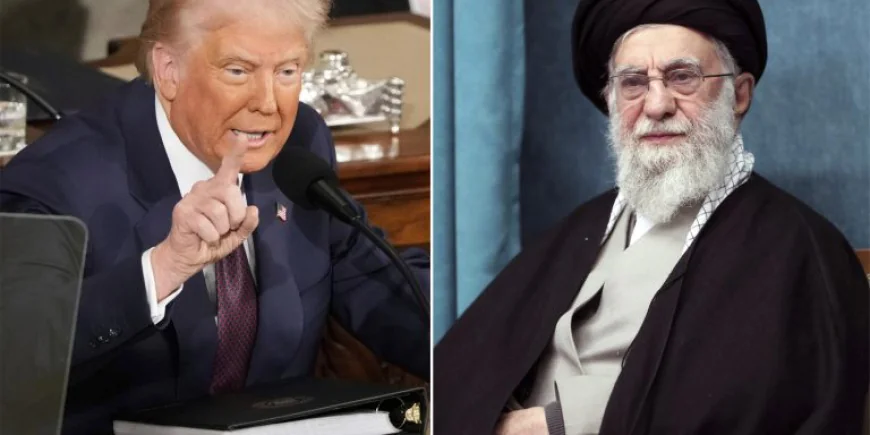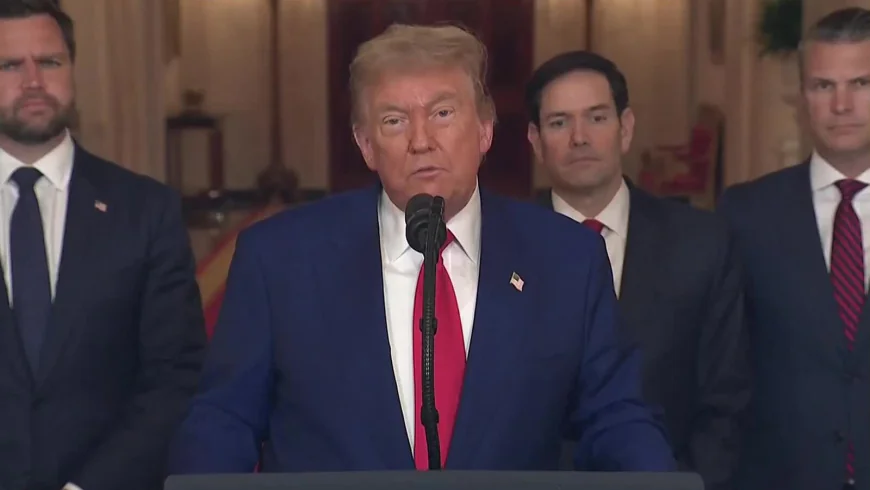“Ceasefire": A Historic Pause in the Israel–Iran Conflict
At the end of June 2025, U.S. President Donald Trump said that Iran and Israel had agreed to a "complete and total ceasefire" after a 12-day war that included airstrikes, missile exchanges, and rising tensions in the region.

Ceasefire became a trending topic on social media and news sites around the world as a big change was happening in the Middle East. At the end of June 2025, U.S. President Donald Trump said that Iran and Israel had agreed to a "complete and total ceasefire" after a 12-day war that included airstrikes, missile exchanges, and rising tensions in the region.
This came after a lot of tension: the U.S. and Israel worked together to bomb some Iranian military and nuclear sites from the air (for example, Fordow, Natanz, and Isfahan). Iran fired missiles back, mostly at a U.S. military base in Qatar and at Israel, where some missiles hit homes and killed civilians in Beersheba.
Also See: Why the Strait of Hormuz Is Trending in 2025: Iran Tensions, Oil Shock & Global Chokepoint Risks
The world was shocked by Trump's revelation. He tweeted that Iran and Israel had both come to him "almost at the same time," asking for peace. He said that a staged ceasefire would start within 24 hours, first with Iran and then with Israel.
Iran's foreign minister, Abbas Araghchi, said that Iran would stop fighting if Israel did, but Israel stayed quiet at first, which led to mixed signals and rumors.
By June 24, both Israel's and Iran's official media confirmed that the ceasefire was in effect, reporting that fighting had stopped and that the war might be changing after 12 days. Markets moved quickly: oil prices went down, gold prices went down, and world stock indexes went up as fears of a bigger war faded.

Experts say that even though people are hopeful, this ceasefire is not very strong. Most of the details of the agreement, like the terms, how it will be enforced, and the long-term strategy, are still not public. Critics point out problems that still need to be worked out, such as Iran's stockpile of enriched uranium, future nuclear talks, and which groups officially agreed to the truce.
Analysts in the U.S. also say that this move affects debates within the U.S. about war powers. Some lawmakers say that the ceasefire makes things less urgent, while others say that constitutional oversight is still needed.
Why is the word "ceasefire" trending around the world?
This is a rare direct ceasefire between Israel and Iran, two of the world's most powerful enemies, instead of a proxy war.
Market reaction: The immediate drop in oil, stock, and commodity prices got a lot of attention around the world.
Geopolitical communication: The ceasefire shows how powerful the U.S. is in bringing down tensions in the region by balancing military strength with diplomacy.
Public resonance: In a world tired of war, any break from violence gets people talking on social media and gives them hope.
In short, "ceasefire" is trending because a high-risk regional war that was expected to last a long time suddenly stopped, and the outcome of that war will have effects on global markets, geopolitical alignments, and the future of stability in the Middle East. This ceasefire gives us a break for now, but we are closely watching how long it lasts and what happens next in terms of diplomacy.


